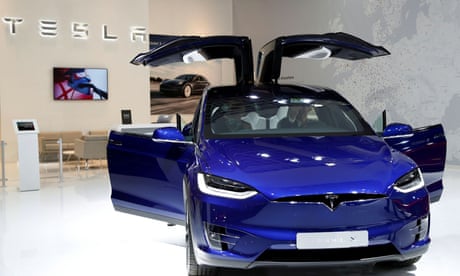
Tesla has settled a lawsuit over a car crash which killed an Apple engineer in 2018 after his car veered off a highway near San Francisco, court documents showed on Monday.
The settlement was made as the trial was about to start over the high-profile accident involving Tesla’s driver assistant technology, ending a five-year legal battle over the case.
The terms of the settlement were not disclosed.
The case involves a highway accident that killed Walter Huang. Tesla had contended Huang misused the system because he was playing a video game just before the accident. Tesla said Huang failed to stay alert and take over driving. “There is no dispute that, had he been paying attention to the road he would have had the opportunity to avoid this crash,” Tesla said in a court filing.
National Transport and Safety Board (NTSB) officials who investigated the crash in 2020 found that Huang made no attempts to stop his vehicle as it sped towards a crash barrier on US Highway 101 near Mountain View, California, before the 2018 crash.
Investigators also found that Huang was playing a video game on his smartphone at the time of the fatal crash.
Huang’s family alleged Autopilot steered his 2017 Model X in to a highway barrier. Lawyers for Huang’s family also raised questions about whether Tesla understood drivers likely would not or could not use the system as directed, and what steps the automaker took to protect them.
Huang’s lawyer and Tesla were not immediately available for comment.
The settlement may have provided a blueprint for others suing over Autopilot. Tesla faces a flurry of lawsuits over crashes related to its alleged use, putting the automaker at risk of large monetary judgments.
“It is striking to me that Tesla decided to go this far publicly and then settle,” said Bryant Walker Smith, a law professor at the University of South Carolina with expertise in autonomous vehicle law. “What this does do, though, is it says to other attorneys, we might settle. We might not always fight it. That is the signal.”
The crash that killed Huang was among hundreds of US accidents in which Autopilot was a suspected factor in reports to auto safety regulators.
The US National Highway Traffic Safety Administration (NHTSA) has examined at least 956 crashes in which Autopilot was initially reported to have been in use. The agency separately launched more than 40 investigations into accidents involving Tesla automated-driving systems that resulted in 23 deaths.
Amid the NHTSA scrutiny, Tesla recalled more than 2m vehicles with Autopilot in December to add more driver alerts. The fix was implemented through a remote software update.
Huang’s case follows two previous California trials over Autopilot that Tesla won by arguing the drivers involved had not heeded its instructions to maintain attention while using the system.
Despite marketing features called Autopilot and Full Self-Driving, Tesla has yet to prove it can produce an autonomous car despite years of predictions by co-founder and CEO Elon Musk that one was just around the corner, an expectation that partly underpinned Tesla’s soaring valuation.
The automaker faces lawsuits and investigations into crashes involving its Autopilot and Full Self-Driving driver-assistance systems, which the car company has blamed on inattentive drivers.
The Autopilot system can steer, accelerate and brake by itself on the open road but cannot fully replace a human driver, especially in city driving. Tesla materials explaining the system warn that it does not make the car autonomous and requires a “fully attentive driver” who can “take over at any moment”.
Reuters contributed reporting